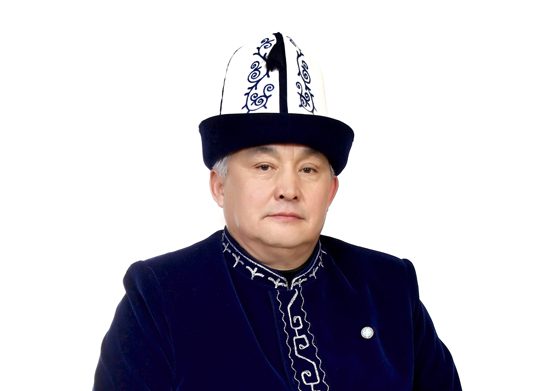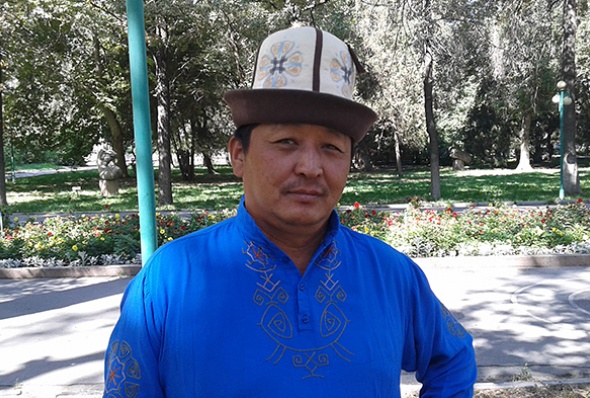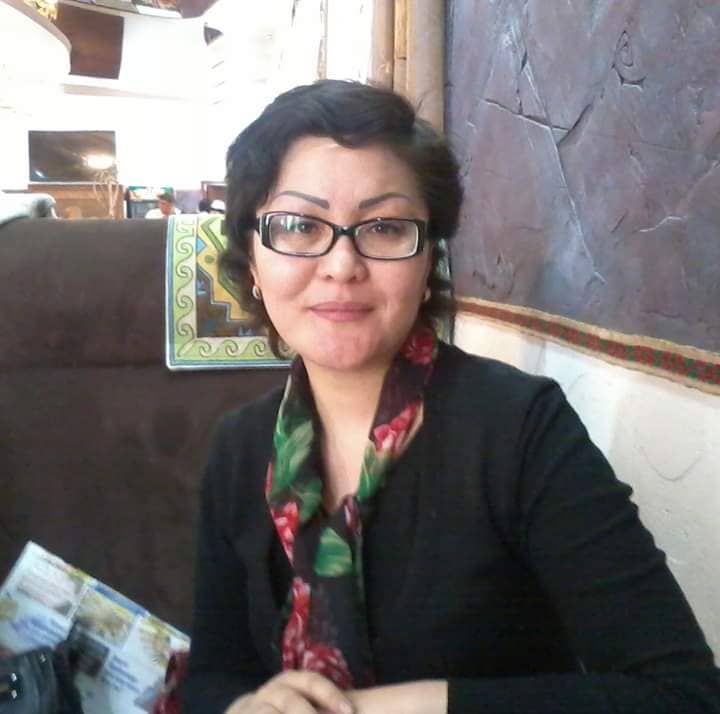Disputes about whether Tengrism is a religion, cult, ancient belief, shamanism or just a philosophy and mind-set have been on-going for 6 years. Its active followers believe this is a religion, whose holy book is the Manas epic. Others think it is a philosophy. According to experts, this is both a cult and an ancient belief. However, no organisation of Tengrists has been registered as a religious one so far.
Follow us on LinkedIn
In January 2012, the chairman of Manas Ordo society, Anarbek Usupbaev, attempted to register the religious organisation of Tengrists, Tengirchilik. He collected all necessary documents and submitted them to the state commission for religious affairs. The authority has submitted the documents for examination, and then denied registration.
To assert his right to deem Tengrism a religion, Usupbaev tried to appeal against the actions of the authority in court and in 2016 the inter-district court of Bishkek made a decision in his favour. The servants of Themis found the actions by the state commission for religious affairs illegal and compelled them to “remedy the breach”.
The wording of the judgement for both parties was too vague and the authority requested the court ruling.
“It says we should remedy the breaches we have committed, yet it doesn’t mean we have to register Tengirchilik. It means we need to observe the procedure set forth in the law on religious freedom. In particular, it specifies that a religion examination should be held, if necessary,” Zakir Chotaev, deputy head of the state commission for religious affairs, said. However, Tengrists insist that according to the judgement the state commission should immediately register Tengirchilik as a religious organisation. “Why should be submit our documents again? We have submitted them once and won the suit. Do we have to do it all again? We don’t have to file documents again, they have them all. “Breaches committed” means that they did not register us. This is a doubletalk they appeal to. We have a judgment,” Usupbaev insisted. Experts at threat After the issue of the court ruling, the state commission conducted a comprehensive examination of the Tengirchilik documents. It should be noted that it was the second examination. The first one was held in 2012, when the organisation first filed documents for consideration. Irina Balashova, senior lecturer of the UNESCO department for world culture studies and religions of KRSU, is one of the members of the first expert group. According to her, they did not examine the documents of Tengirchilik, but prepared a historical note about the phenomenon of Tengrism: what it is, when it first appeared. They concluded that tengri is a cult, and the state commission decided it was not a proper religion. However, later on all experts who gave their opinions unexpectedly withdrew them. “They had complaints not to the state commission, but to our expert opinion. So, after a bad scandal and threats, in order to avoid the continuation of this conflict, the experts asked the commission to take this issue off the table. Everything happened at the department when they [Tengirchilik] came to us unexpectedly. They made threats of this kind: “We will come to you during the thesis defence to see how you do it.” In general, the threats were not blunt, but, say, not very nice,” Balashova said. However, Anarbek Usupbaev has his own version of events. “These are all fairy tales. We met the first experts and proved them by showing books they had never seen. I took 20 kilogrammes of books in two bags. When I showed them, their eyes popped out. They were amazed and changed their opinion. Why would we threaten anyone? They saw the evidence and gave their opinion,” Usupbaev said. The second examination held following the judgement was not just a religious one, but comprehensive with participation of representatives of the academic community, independent experts and relevant authorities. However, the state commission does not reveal the names of experts in order to avoid the previous situation.
In June 2011, Tengrist Kubanychbek Tezekbaev in the live programme on Kyrgyz Radio said that many mullahs in Kyrgyzstan were “former alcoholics and murderers” who wanted to accept their past. GKNB [State Committee for National Security] opened a criminal case on his statement.
This February, ex-mufti of Kyrgyzstan Chubak Zhalilov called the Tengrist Anarbek Usupbaev a kafir (“kaapyr”). “There are some people, who are not Muslims, they are Tengrists, who criticise my statements. One of them is kafir (“kaapyr”) Anarbek Usupbaev. When I say “Nooruz may not be celebrated”, he becomes outraged “why?” I don’t tell him [Anarbek Usupbaev] he may not celebrate Nooruz, he may celebrate Nooruz and all other holidays. I say we [Muslims] may not celebrate Nooruz. […] I address those who are Muslims, who want to be Muslims,” Chubak Zhalilov said in one of his sermons.
Tengrist Gulzat Aalieva thinks that the state commission for religious affairs didn’t register their community officially because of the influence of the Muslim leaders.
“Currently, the state machinery represented by the state commission for religious affairs creates artificial obstacles to us, where such aalyms have the influence. Why would they do that? Because currently nearly 1,900 Islamic organisations have been registered. Aalyms, ulema have great influence on the state commission for religious affairs, i.e. the state commission as a secular state agency is fully governed by these aalyms,” Aalieva said. “We are a state agency and are independent from any religious organisations. We perform our functions in full compliance with the laws and regulations, i.e. law on the freedom of religion and religious organisations, regulation on the state commission for religious affairs. So I think it would be wrong to say that someone influences us especially since the principle of secularism implies that religious organisations or religious workers cannot influence the work of state agencies,” Zakir Chotaev said. Why do Tengrists need registration?
Apart from such activists as Gulzat, there are many people in Kyrgyzstan who deem themselves Tengrists, but don’t think it is a religion:
This publication was produced under IWPR project «Forging links and raising voices to combat radicalization in Central Asia»

